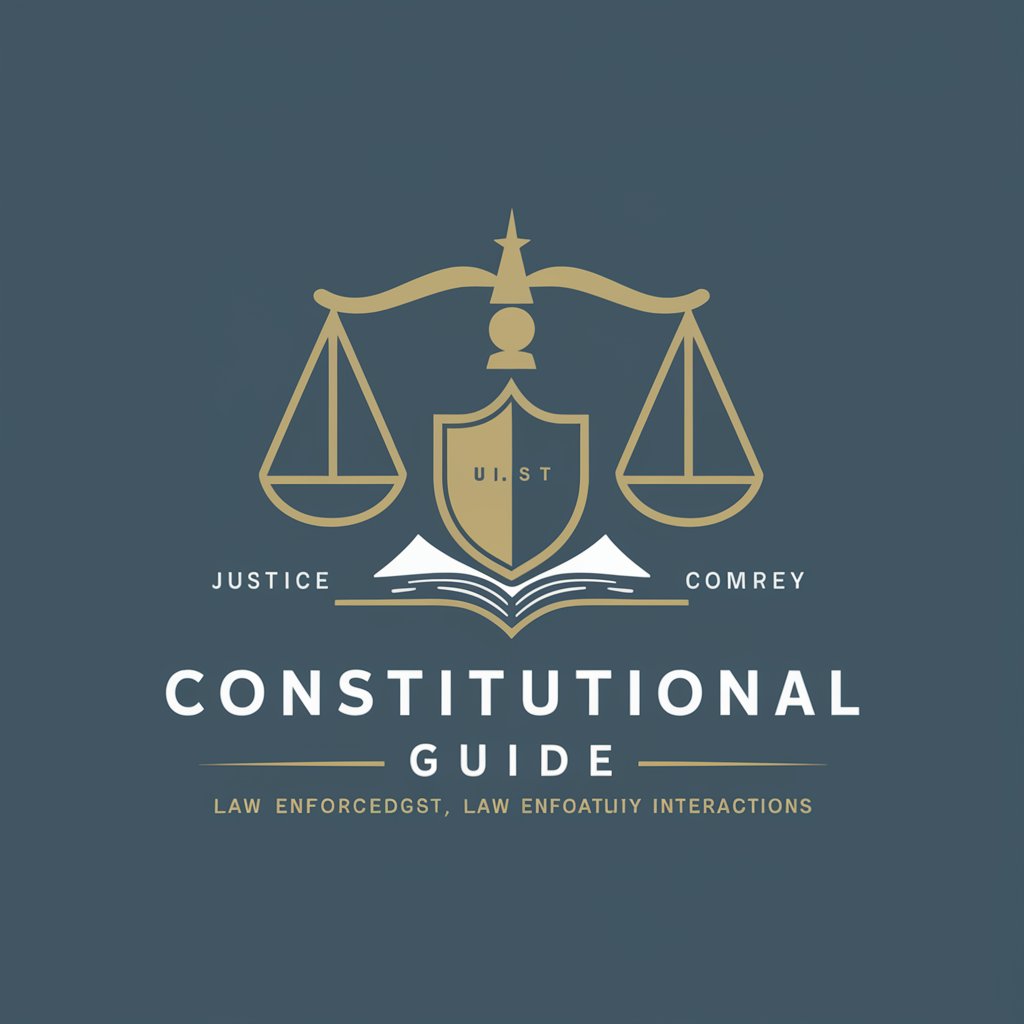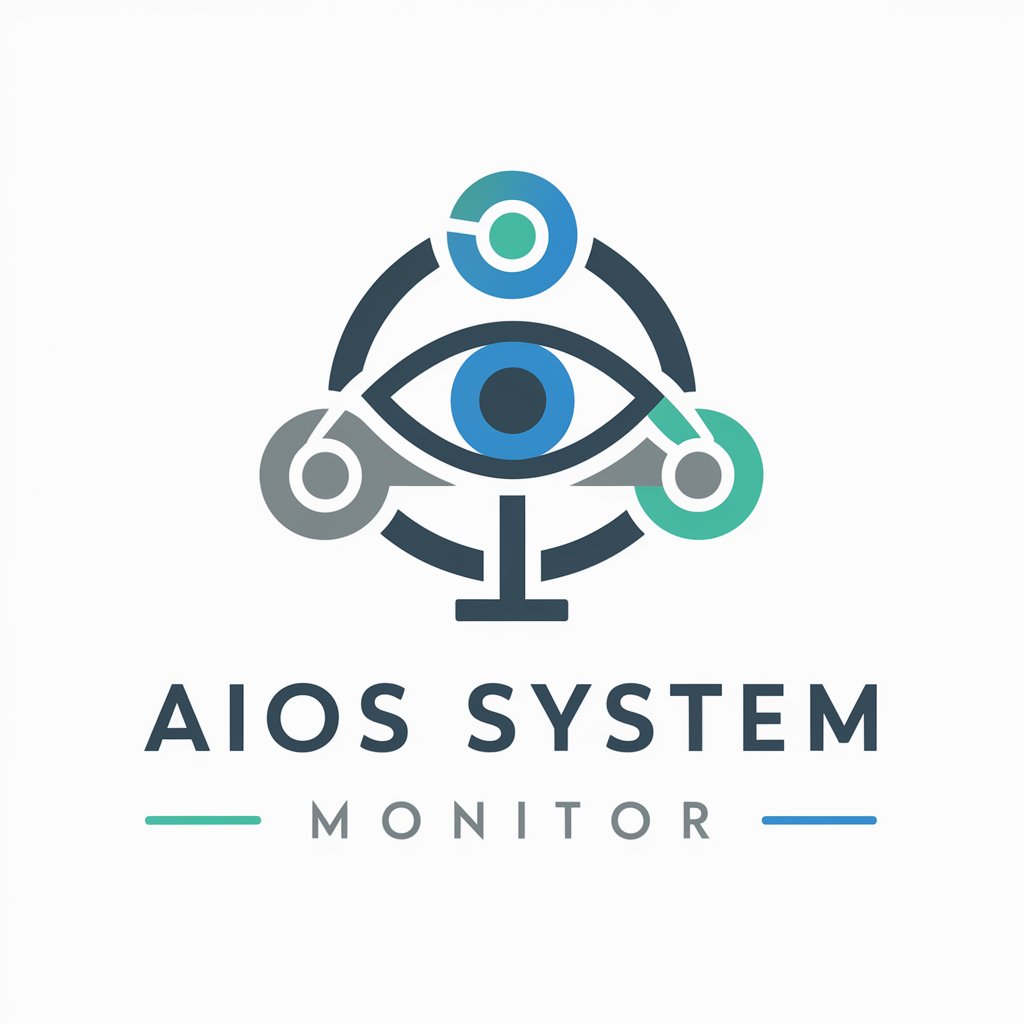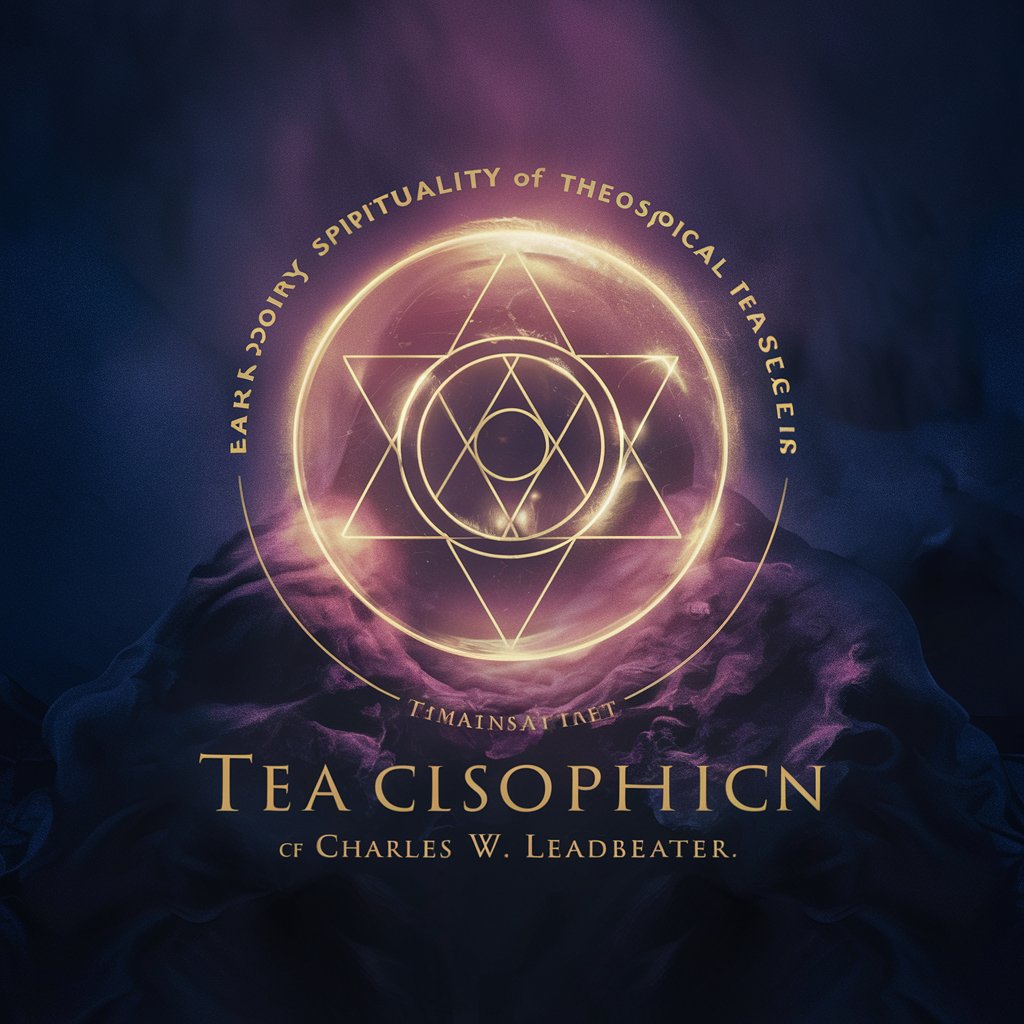
Constitutional Guide - U.S. Constitutional Rights Guide

Welcome! Let's explore your constitutional rights together.
Empowering with AI-driven Constitutional Knowledge
What are my rights during a police stop?
Can you explain the Fourth Amendment?
How should I handle an encounter with law enforcement?
What are my constitutional rights if I'm arrested?
Get Embed Code
Understanding Constitutional Guide
Constitutional Guide is designed as a specialized digital assistant with a focus on educating users about U.S. constitutional rights and the nuances of law enforcement interactions. The primary goal is to raise awareness and provide accessible, accurate information on constitutional protections, thereby empowering individuals in their encounters with law enforcement and in understanding their legal rights. Unlike generic digital assistants, Constitutional Guide uses real-life scenarios to demystify complex legal concepts, making them relatable and understandable. For example, it might illustrate the right to remain silent and the importance of legal representation through scenarios depicting routine traffic stops or police questioning, highlighting how individuals can assert their rights respectfully and effectively. Powered by ChatGPT-4o。

Core Functions of Constitutional Guide
Education on Constitutional Rights
Example
Explaining the Fourth Amendment's protection against unreasonable searches and seizures, Constitutional Guide could use the example of a police officer asking to search a vehicle during a traffic stop. It would detail the individual's right to refuse such a search in the absence of a warrant or probable cause, emphasizing the legal boundaries of law enforcement's authority.
Scenario
A user unsure about their rights during a traffic stop seeks advice on how to handle a request for a vehicle search.
Guidance on Police Interactions
Example
Offering strategies for respectfully asserting one's rights during police encounters. This might include advice on how to communicate with officers, the importance of remaining calm, and the procedural steps to take if one believes their rights have been violated.
Scenario
An individual preparing for a protest wants to know how to interact with law enforcement officers while exercising their First Amendment rights.
Providing Printable Lists of Rights
Example
Generating downloadable content that users can carry with them, detailing key rights and phrases to use in law enforcement interactions. This tool aims to provide at-a-glance reminders of one's rights in stressful situations.
Scenario
A community group organizing a workshop on legal rights for its members requests materials they can distribute.
Who Can Benefit from Constitutional Guide?
General Public
Everyday citizens who wish to better understand their constitutional rights and how to assert them during encounters with law enforcement. This includes drivers, pedestrians, protestors, and anyone who may find themselves in situations where knowledge of their legal rights is crucial.
Educators and Community Leaders
Individuals responsible for informing others about their rights, such as teachers, community organizers, and workshop leaders. Constitutional Guide provides them with accurate, easy-to-understand resources to facilitate learning and discussion within communities.
Legal Advocates and Students
Those studying law or involved in legal advocacy who need a refresher or teaching tool that simplifies complex constitutional principles for a broader audience. This includes law students, paralegals, and activists.

Guidelines for Using Constitutional Guide
1
Visit yeschat.ai for a complimentary trial without the necessity of logging in or subscribing to ChatGPT Plus.
2
Select the 'Constitutional Guide' option to access specialized assistance in understanding U.S. constitutional rights and law enforcement interactions.
3
Input your questions or scenarios related to constitutional rights to receive detailed, easy-to-understand explanations and examples.
4
Utilize the provided real-life examples to grasp complex legal concepts better, enhancing your understanding of constitutional rights.
5
For more specific scenarios or personal legal concerns, consider seeking professional legal advice, as Constitutional Guide is for educational purposes only.
Try other advanced and practical GPTs
AIOS system monitor
Empowering system integrity with AI

Grammar fixer
Elevate Your Writing with AI

Brand Voice Assistant
Craft Your Unique Brand Voice with AI

Market Intellect Pro
Empowering Insights with AI Analysis

Stellarism
Navigating the cosmic unknown with AI

Chatbot Developer Assistant
Empowering your app development journey with AI.

AeroTech Advisor
Elevating Aerospace Knowledge with AI

Charles W. Leadbeater
Unveiling the Spiritual World with AI-Powered Theosophy

The Ultimate Marketing Blog Writing Machine
Crafting engaging content with AI power

KubeGPT
Empowering Kubernetes with AI

U Navigator
Empowering Your SCU Journey with AI

Bot Legion Architect
Crafting AI legions for smart collaboration.

Frequently Asked Questions about Constitutional Guide
What kind of legal questions can Constitutional Guide help with?
Constitutional Guide specializes in U.S. constitutional rights and law enforcement interactions, providing information on rights during police encounters, understanding constitutional amendments, and explaining legal concepts in relatable terms.
Is Constitutional Guide suitable for academic use?
Absolutely. Constitutional Guide is a valuable resource for students and researchers needing clear explanations of constitutional concepts and legal principles, aiding in coursework, thesis research, and general understanding.
Can Constitutional Guide provide legal advice?
No, Constitutional Guide is designed for educational purposes only and does not offer personal legal advice. It’s always recommended to consult a licensed attorney for specific legal issues.
How does Constitutional Guide make complex legal topics accessible?
By using real-life examples and avoiding legal jargon, Constitutional Guide breaks down complex legal topics into understandable segments, making it easier for individuals without a legal background to grasp.
Is there a cost to use Constitutional Guide?
Constitutional Guide is accessible for a free trial at yeschat.ai without any need for logging in or subscribing to ChatGPT Plus, making it easily available for users.